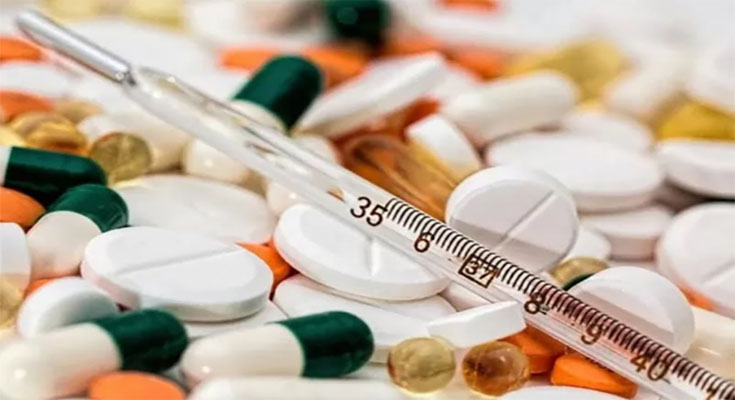The realm of new drug development is a sophisticated and multi-faceted field requiring a confluence of expertise, innovation, and precision. A New Drug Development pharmacist expert plays a pivotal role in this intricate process, combining deep pharmaceutical knowledge with cutting-edge research to bring novel therapies to market. pafikabmataram.org This article delves into the integral functions, challenges, and advancements associated with the role of a pharmacist in new drug development.
The Role of a New Drug Development Pharmacist Expert
New Drug Development pharmacist experts are essential in the pharmaceutical industry, guiding the journey of drug candidates from conception to commercialization. Their responsibilities encompass a broad spectrum of activities:
- Drug Discovery and Design: Pharmacists involved in new drug development contribute significantly to the early stages of drug discovery. They collaborate with chemists and biologists to design and synthesize new compounds, aiming to target specific biological pathways or diseases. Their expertise in pharmacokinetics and pharmacodynamics helps in identifying promising drug candidates.
- Clinical Trials Management: Once a drug candidate progresses to clinical trials, New Drug Development pharmacist experts oversee its evaluation in human subjects. They ensure that clinical trials are conducted according to regulatory standards, manage drug formulations, and monitor patient safety. Their role involves designing trial protocols, selecting appropriate dosages, and analyzing clinical data.
- Regulatory Compliance: Navigating the complex regulatory landscape is crucial for the approval of new drugs. New Drug Development pharmacist experts work closely with regulatory agencies to ensure that all aspects of drug development meet the required standards. They prepare and review documentation, including Investigational New Drug (IND) applications and New Drug Applications (NDAs), to facilitate regulatory approval.
- Formulation and Development: Pharmacists with expertise in new drug development are integral to formulating new drug products. They work on developing stable and effective drug formulations, optimizing delivery methods, and ensuring that the drug maintains its efficacy throughout its shelf life.
- Pharmacovigilance: Monitoring the safety of new drugs is a continuous process. New Drug Development pharmacist experts implement pharmacovigilance programs to detect, assess, and prevent adverse drug reactions. They analyze safety data and make recommendations for risk mitigation.
Challenges in New Drug Development
The path to developing a new drug is fraught with challenges, and New Drug Development pharmacist experts are at the forefront of addressing these issues:
- Complexity of Drug Discovery: Identifying and developing a new drug involves understanding complex biological systems and interactions. Pharmacists must navigate these complexities to discover novel therapeutic targets and compounds.
- Regulatory Hurdles: The regulatory environment for drug approval is stringent and varies across countries. New Drug Development pharmacist experts must stay abreast of evolving regulations and ensure compliance with diverse regulatory requirements.
- Cost and Time Constraints: Drug development is an expensive and time-consuming process. Managing costs while ensuring the thoroughness of research and development is a significant challenge. New Drug Development pharmacist experts work to streamline processes and optimize resource allocation.
- Safety and Efficacy: Balancing safety and efficacy is crucial. Pharmacists must ensure that new drugs are both effective in treating diseases and safe for patient use. This involves rigorous testing and monitoring throughout the development process.
Advancements and Innovations
Recent advancements have revolutionized the field of new drug development, with New Drug Development pharmacist experts playing a key role in these innovations:
- Personalized Medicine: Advances in genomics and biotechnology have paved the way for personalized medicine. New Drug Development pharmacist experts utilize genetic and molecular information to tailor drug therapies to individual patients, improving efficacy and reducing adverse effects.
- Biopharmaceuticals: The development of biopharmaceuticals, including monoclonal antibodies and gene therapies, has transformed treatment options for various diseases. Pharmacists are involved in developing and optimizing these complex biologics, ensuring their safe and effective use.
- Advanced Drug Delivery Systems: Innovations in drug delivery systems, such as nanotechnology and controlled-release formulations, have enhanced drug efficacy and patient compliance. New Drug Development pharmacist experts work on designing and implementing these advanced systems to improve therapeutic outcomes.
- Artificial Intelligence and Machine Learning: The integration of artificial intelligence (AI) and machine learning in drug development has accelerated the discovery and optimization of new drugs. Pharmacists leverage these technologies to analyze large datasets, predict drug interactions, and streamline the development process.
Conclusion
In summary, New Drug Development pharmacist experts are indispensable in the quest to develop innovative and effective medications. Their expertise spans drug discovery, clinical trials, regulatory compliance, and formulation, addressing the multifaceted challenges of drug development. With advancements in personalized medicine, biopharmaceuticals, and technology, these experts continue to drive progress in the pharmaceutical industry, ensuring that new drugs are both safe and efficacious. As the field evolves, the role of the pharmacist in drug development will remain crucial, shaping the future of medical treatment and patient care.









